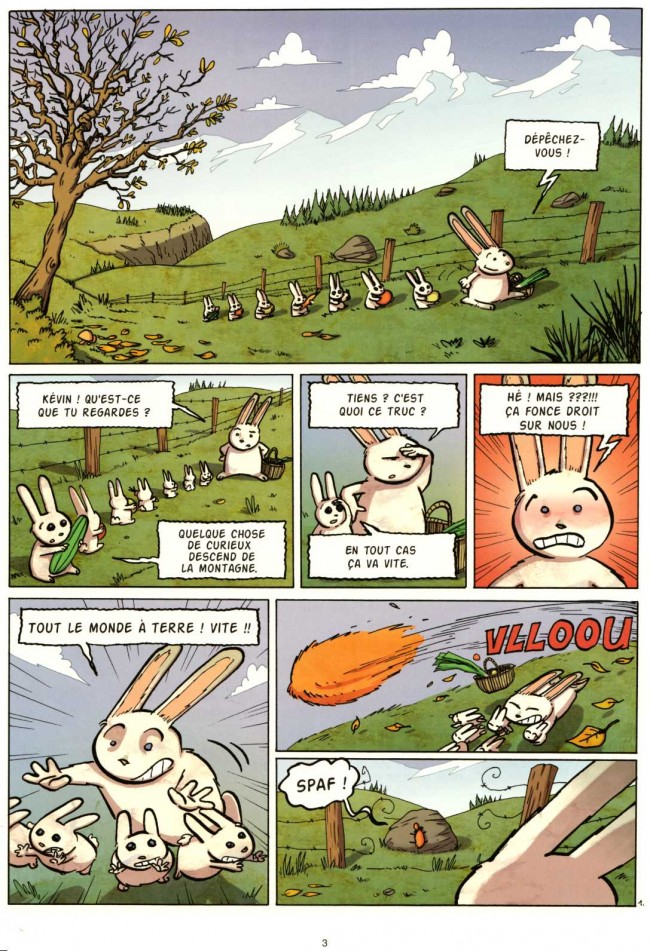Trump Tariffs Partially Overturned: A Legal Victory, But Limited Relief For Canada

Table of Contents
The WTO Ruling and its Implications
The World Trade Organization (WTO) ruling against the US tariffs on Canadian softwood lumber represents a partial, yet important, victory for Canada. This landmark decision, following years of dispute settlement proceedings, addressed the illegal imposition of countervailing and anti-dumping duties by the United States.
-
Specifics of the Ruling: The WTO panel found that the US had improperly applied countervailing duties, levied to offset perceived government subsidies to Canadian lumber producers, and anti-dumping duties, designed to counteract alleged below-market pricing. The ruling specifically targeted certain aspects of the US methodology in calculating these duties, deeming them inconsistent with WTO rules.
-
Legal Arguments: Canada's successful legal challenge centered on demonstrating that the US calculations were flawed and failed to accurately reflect the true nature of the Canadian softwood lumber industry and market conditions. Their arguments highlighted inconsistencies in the US assessment of subsidies and market pricing, proving the tariffs were unfairly imposed.
-
Scope of the Ruling: While the ruling overturned certain components of the US tariffs, it did not eliminate them entirely. This partial nature means that some tariffs remain in place, limiting the extent of relief for Canadian producers. This selective invalidation created a complex situation, requiring careful analysis of specific tariff schedules and their continued application.
-
Financial Implications: The financial implications are complex and far-reaching. While the partial overturning offers some economic benefits to Canada, the lingering tariffs continue to hinder Canadian lumber exports to the US, impacting revenues and potentially affecting jobs within the Canadian lumber industry. The potential for further legal battles and their associated costs adds to the overall financial uncertainty.
Limited Relief for Canadian Lumber Producers
The partial overturning of the Trump tariffs provides only limited relief for Canadian lumber producers. While a victory, it falls short of a complete removal of trade barriers.
-
Remaining Tariffs and Impact: The continued presence of some tariffs significantly restricts Canadian lumber exports to the US market, one of the largest and most important for Canadian producers. This persistent trade barrier continues to impact market access and competitiveness.
-
Market Share Impact: Canadian lumber producers are still facing challenges in maintaining or regaining their market share in the lucrative US market. The remaining tariffs make Canadian lumber less price-competitive, allowing US producers to gain a larger share of the market.
-
Economic Impact and Job Losses: The lingering trade restrictions have led to economic uncertainty, impacting employment levels in Canadian lumber-producing regions. While job losses may not be immediate or widespread, the slower-than-expected recovery negatively impacts long-term economic stability in affected communities.
-
Navigating US Trade Policy: Canadian lumber producers continue to face the challenge of navigating the complexities of US trade policy, which remains unpredictable and often subject to sudden shifts. This ongoing uncertainty makes long-term planning and investment difficult.
The Future of US-Canada Lumber Trade
The future of US-Canada lumber trade remains uncertain despite the partial WTO victory.
-
Further Legal Challenges and Negotiations: The possibility of further legal challenges or bilateral negotiations between Canada and the US remains. The outcome of any such actions could significantly influence the long-term effects of this ruling.
-
Impact on the Broader US-Canada Trade Relationship: The softwood lumber dispute is one facet of a broader and often complex US-Canada trade relationship. The outcome of this case could potentially influence the dynamics of future trade negotiations and disputes between the two countries.
-
Future of Softwood Lumber Trade: Predicting the future of softwood lumber trade is challenging. While the WTO ruling offers some clarity, it does not guarantee a complete resolution of the trade dispute, leaving an element of uncertainty regarding the long-term stability of this vital trading relationship.
-
The Role of USMCA: The USMCA (formerly NAFTA) is intended to provide a framework for resolving trade disputes between Canada, the US, and Mexico. However, its effectiveness in this specific case remains to be seen, and its future role in addressing similar trade conflicts will be carefully watched.
-
Trade Policy Uncertainty and Investment: The ongoing uncertainty surrounding US trade policy discourages investment in the Canadian lumber industry. Businesses hesitate to commit to expansion or modernization projects when facing the prospect of unpredictable trade barriers.
Conclusion
The partial overturning of Trump-era tariffs on Canadian softwood lumber represents a partial victory, but the limited relief highlights the continued complexities of US-Canada trade relations. While the WTO ruling offers some solace, significant challenges remain for the Canadian lumber industry. The continued presence of some tariffs, coupled with the inherent uncertainty of US trade policy, demands proactive measures from Canadian producers and policymakers alike.
Call to Action: Stay informed about the evolving situation surrounding the Trump tariffs and their ongoing impact on the Canadian economy. Follow updates on further legal challenges and negotiations to better understand the future of US-Canada lumber trade and the implications for both countries. Further research into the impact of trade sanctions will be crucial for those invested in the North American lumber market.

Featured Posts
-
 Kontuziyata Na Grigor Dimitrov Vliyanie Vrkhu Karierata Mu
May 31, 2025
Kontuziyata Na Grigor Dimitrov Vliyanie Vrkhu Karierata Mu
May 31, 2025 -
 Banksy In Bournemouth Verifying The Westcliff Artwork Authenticity
May 31, 2025
Banksy In Bournemouth Verifying The Westcliff Artwork Authenticity
May 31, 2025 -
 Saint Die Des Vosges Participez Au Game De Dahu 1
May 31, 2025
Saint Die Des Vosges Participez Au Game De Dahu 1
May 31, 2025 -
 Cultivating Robust Rosemary And Thyme Plants A Practical Guide
May 31, 2025
Cultivating Robust Rosemary And Thyme Plants A Practical Guide
May 31, 2025 -
 Cycle News Magazine Issue 12 2025 Top Stories And Reviews
May 31, 2025
Cycle News Magazine Issue 12 2025 Top Stories And Reviews
May 31, 2025
